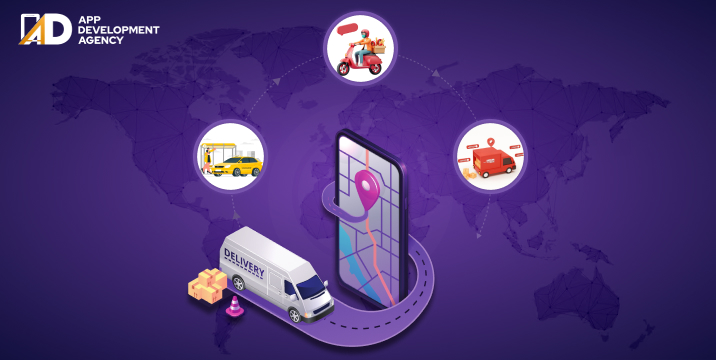RN owes a lot to the presence of JavaScript Library empowering frontend developers to work with web-based technologies and create robust, production-ready solutions that can be accessed across platforms. It saves costs, reduced time and efforts to migrate or reduce the codebase.
Many organizations initially wanted their development teams to create an offline-first application and then scale it further to include the online capability and more complex features to make it accessible across networks and operating systems. Developers, therefore, need to select an appropriate technology stack, with database and backend being the backbone of the application, considering that it will still be able to accommodate users if the number grows. Small to medium scale companies still find React Native development as a reliant option for hybrid app development.
Parameters |
React Native |
Ionic |
Xamarin |
PhoneGap/Cordova |
| What is the purpose? | Learn Once, Write Anywhere | Write Once, Run Anywhere | Write Once, Run Anywhere | Write Once, Run Anywhere |
| Who owns it? | It is owned by Facebook | Drifty owns it | It is owned by Microsoft | Adobe Sytems owns it |
| The core language? | React Native is completely based on JavaScript but it also makes use of React.js to some extent | CSS, HTML, JavaScript,
TypeScript, AngularJS, |
C# | CSS, HTML, JavaScript |
| How performant is it? | Native Experience | Slow in comparison to React Native | The performance is stable. | Slower in comparison to others. |
| Is the app testable? | Real Mobile Devices or Emulator is required to test the React Native App | By using any browser you can test the code. | Testing can be done using Mobile Apps. | Testing can be done using browsers, mobile devices or emulators. |
| How compatible is it with the hardware? | React Native does not require supporting techniques. | It makes use of Apache Cordova | It requires an SDK kit. | Frequent rendering slows the app. |
| Can the code be reused? | All of the platform-specific code requires a change. | Code is optimally used | It allows reusing 95% of the code. | Existing native libraries can be reused. |
React Native is inherently created to resolve core issues like extended iteration period, imperative programming, and some minor or major differences in the codebase.
It is important to evaluate whether the database will be able to handle the project complexity, the number of users, the load times, number of server-side and client-side scripting languages in the first order, the number of code lines, capability to manage memory, Handling Data Conflicts and Concurrency, Synching of the Offline Data, the database and the conflict-handling policies as well as whether you are planning to go for the server-side or local database.
The local data storage options for React Native Apps include RealM, Firebase, SQLite, PouchDB, AsyncStorage class, Watermelon DB and Vasern. The most popular ones are discussed here (In no particular order):
What is it: Firebase supports as a real-time No-SQL database for React Native.
Why is it preferable for React Native App Development:
It helps in data synchronization and offline data modification. It also helps to fulfil any requirements to serve as a Model View Controller for RN applications. It also comes with a cross-platform API for setup. This makes it easily accessible from any mobile device. Firebase up to 1GB is completely free and the basic plans start at $25/month.
What is it: Realm can be perceived as a local database suitable for offline and real-time mobile applications. It has been built on top of SQLite with its database engine which gives it the properties of being suitable for object-oriented tasks and not very much inclined towards relational queries.
Why is it preferable to React Native App Development: It works well under load, with many users involved and lots of data. It comes with a standard price of $25/month which starts after the first-month free trial.
What is it: It was created for its ability to create a local storage database for mobile applications.
Why is it preferable to React Native App Development: It is preferred because it requires minimal setup and implements maximum SQL standards to handle complex data. It is highly performant and provides great database experience. It is open-source and free to be used.
What is it: It is a server-side database that is built to handle large applications. It makes use of a key-value store and a relational database to store objects with dynamic schemas in JSON documents.
Why is it preferable for React Native App Development:
This database is preferable if the mobile app has a scope to be scaled up in the future. The pricing depends upon your particular cloud deployment and can be checked up on MongoDB’s official website.
What is it: It is a NoSQL server-side database that is designed to run on the Amazon Web Services cloud platform.
Why is it preferable for React Native App Development:
It is decentralized and rarely requires any sort of administration. It charges per GB disk space and provides 25 GB free for the first-month usage. Further, the price accelerates at $0.25 per GB/month thereafter.
React Native App Development Companies select the database once they are aware of the scope and intent of the application plus specific requirements. Each one of the databases discussed above is suitable for React Native application with minor tweaks and goes well if you want to develop a native application in real-time. To summarize:

For every average and middle-class individual, their owned cars are a major expense to them. The expense does not only mean purchasing an expensive vehicle, but it is also about the recurring expenses after making the car purchase; such as repair, maintenance, fuel cost, monthly car payment, car insurance, etc. What if we tell you …
Continue reading “Best Driving Apps to Make Money in 2024”
Read More
Story Time: It’s the last of the month… and you have a low balance in your bank account. You need money to pay off an EMI, but salary payday is still two days ahead. Sounds like skating on thin ice… Right? That’s where cash advance apps like Possible Finance come into the picture. ‘Cash Advance …
Continue reading “21 Top Apps like Possible Finance to Get Instant Money in 2024”
Read More
Is the ridesharing industry saturated now? No doubt there are already a lot of best ridesharing apps globally. However, as per Statista, the leading research site, the ridesharing market is expected to grow at 22.13% annually and reach $226 billion dollars by 2028. The numbers are crazy, and to further prove our point – Arro, …
Continue reading “14 Best RideShare Apps in 2024”
Read More